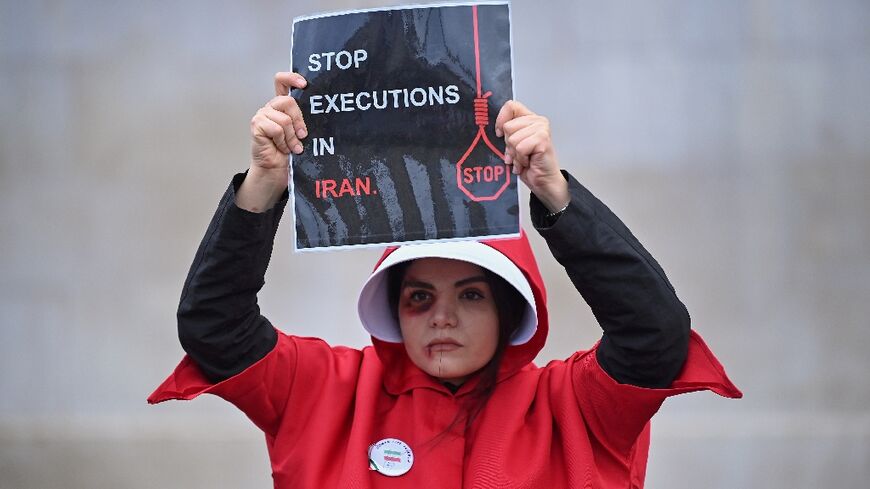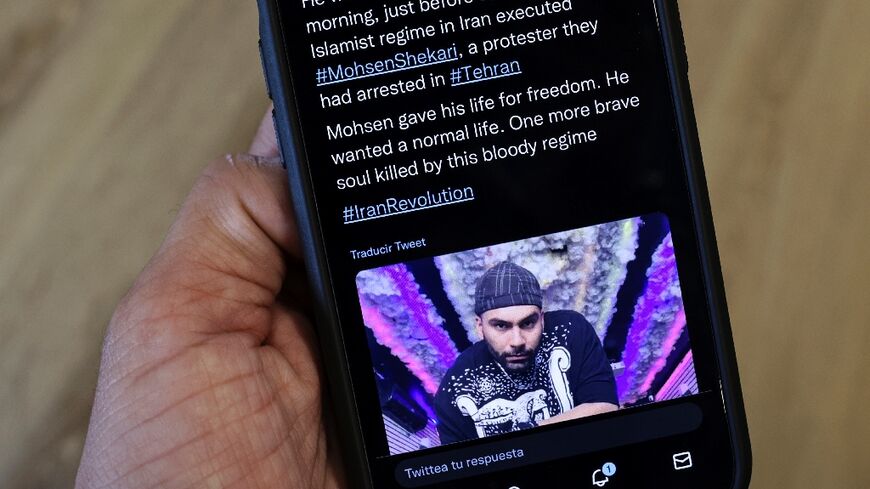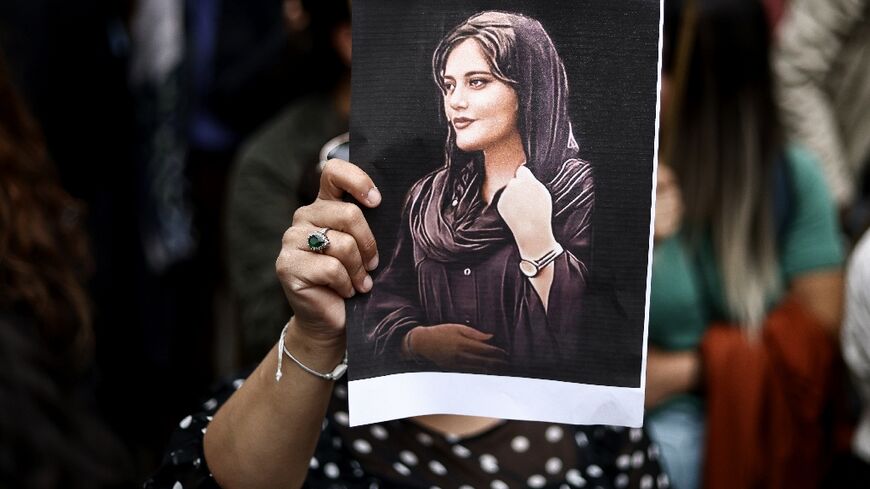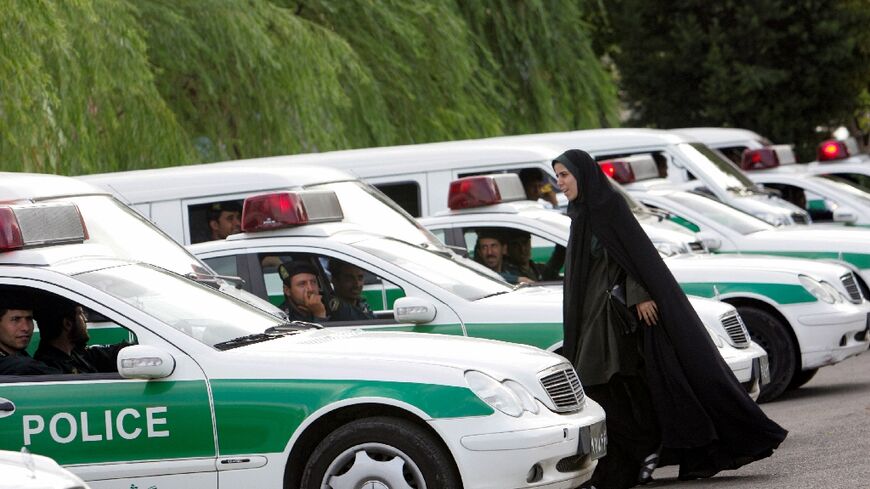Iran sentences five to hang over protest-linked killing
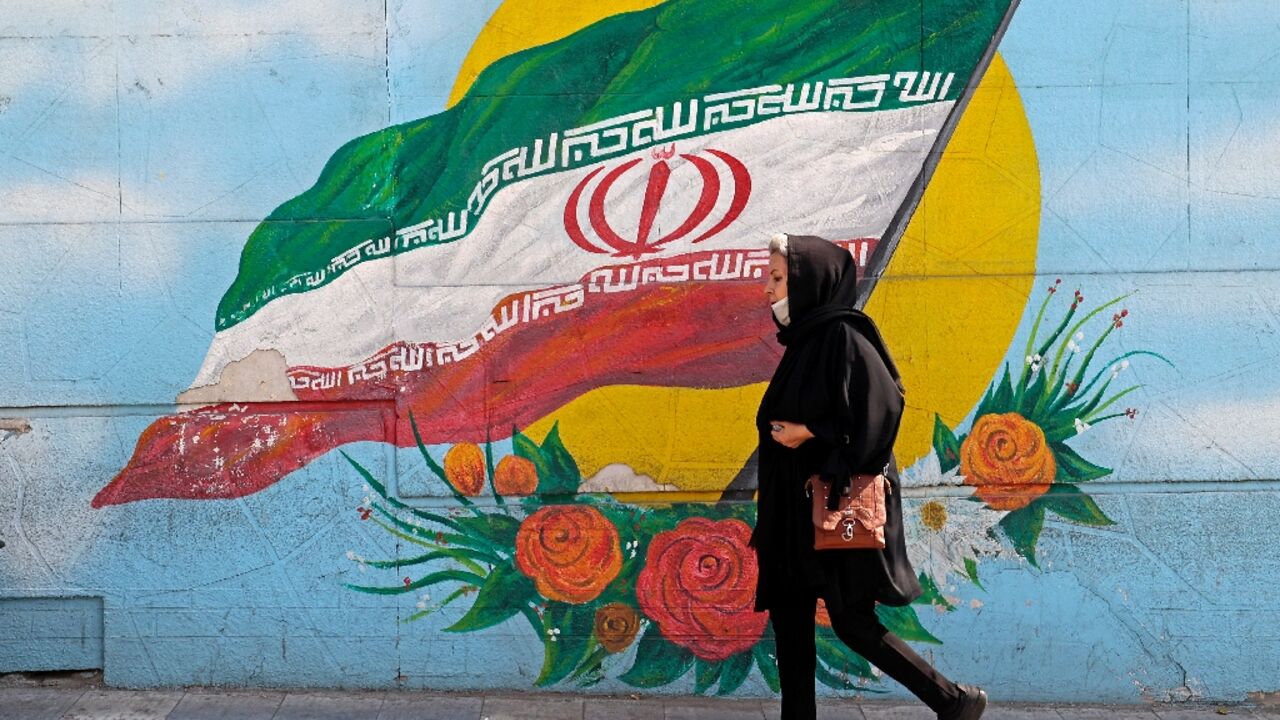
Iran sentenced five people to hang for killing a paramilitary member, the judiciary said Tuesday, a ruling condemned by rights activists as a means to "spread fear" and stop protests over Mahsa Amini's death.
Another 11 people, including three children, were handed long jail terms over the murder, judiciary spokesman Massoud Setayeshi told a news conference, adding the sentences could be appealed.
Prosecutors said paramilitary member Ruhollah Ajamian, 27, was stripped naked and killed by a group of mourners who had been paying tribute to a slain protester, Hadis Najafi.
Najafi was killed on September 21, five days into the wave of protests that erupted across Iran after the death of Amini, following her arrest by the morality police for an alleged breach of the country's hijab dress code for women.
Iran has struggled to quell the largely peaceful protests.
In a surprise move, Iran's prosecutor general, Mohammad Jafar Montazeri was Sunday quoted as saying that the morality police units –- known formally as Gasht-e Ershad ("Guidance Patrol") -- had been closed down.
But his comments have yet to be followed up by an official announcement and have drawn widespread scepticism.
Ajamian had died on November 3 in Karaj, west of Tehran, after being attacked with "knives, stones, fists, kicks" and being dragged along a street, said the judiciary spokesman.
He belonged to the Basij, a state-sanctioned volunteer force that is linked to Iran's powerful Islamic Revolutionary Guard Corps.
- Protesters again defy crackdown -
The five sentenced to death were convicted of "corruption on earth" -- one of the most serious offences under Islamic sharia law in Iran.
The other 11, including a woman, were convicted for "their role in the riots" and received lengthy prison terms, said Setayeshi.
The rulings bring to 11 the number of people sentenced to death over the protests.
They were condemned by Norway-based non-governmental organisation Iran Human Rights.
"These people are sentenced after unfair processes and without due process," IHR director Mahmood Amiry-Moghaddam told AFP. "The aim is to spread fear and make people stop protesting."
Despite a crackdown that has killed hundreds, images posted online showed shops closed in cities across the country on Tuesday, the second day of a strike that culminates Wednesday on Student Day.
"Freedom, freedom, freedom," dozens of students from Tehran's Allameh Tabatabai University were heard chanting in a video published by IHR.
At least 448 people have been "killed by security forces in the ongoing nationwide protests", the Oslo-based rights group said in its latest toll issued on November 29.
Iran, which accuses the United States and its allies Britain and Israel of fomenting the rest, said on Saturday that more than 200 people have been killed since the protests began. A general had put the figure at more than 300 last week.
- Campaign of arrests -
Iran currently executes more people annually than any nation other than China, Amnesty International says.
The London-based rights group said on November 16 that, based on official reports, at least 21 protesters had been charged with crimes that could see them hanged in what it called "sham trials".
The crackdown has also seen thousands of people arrested, including 40 foreigners and prominent actors, journalists and lawyers.
Among them are a dozen alleged members of an unnamed European-linked group accused of planning acts of sabotage.
The Revolutionary Guards in Markazi province, southwest of Tehran, said Tuesday they had arrested "a network with 12 members with links abroad".
They had been "under the guidance of counter-revolutionary agents living in Germany and the Netherlands" and had "attempted to procure weapons and intended to carry out subversive acts".
The Guards, referring to the nationwide protests, said that the "riots project has failed".
It warned acts of sabotage would continue, however, and appealed for the "vigilance of loyal people... especially shopkeepers, students and workers" to foil them.
Iranian lawmaker Hossein Jalali called on the authorities to send women who fail to observe hijab text messages threatening to block their bank accounts, Shargh newspaper said.
Meanwhile police in Britain said a fire broke out overnight next to the London office of the People's Mojahedin Organization of Iran (PMOI) opposition group. There was no evidence so far that it was a deliberate attack.
burs-dv/dwo


